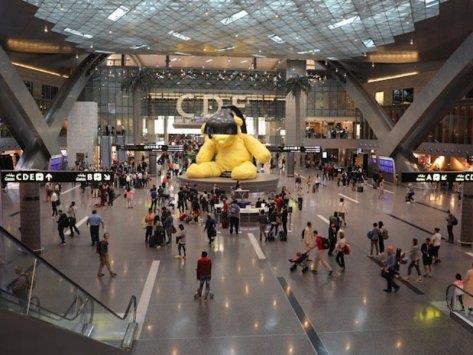
Qatar makes great efforts in aressing climate change
(MENAFN- The Peninsula) Doha: The State of Qatar attaches great importance to addressing the phenomenon of climate change and has implemented several projects and initiatives to contribute to efforts aimed at curbing air pollutants and reducing carbon dioxide emissions and increasing reliance on renewable energy sources.
The State of Qatar, represented by the Ministry of Municipality and Environment, has a major role in cooperation with international organizations and bodies concerned with the environment and climate change.
Qatar is among the first countries to accede to the United Nations Framework Convention on Climate Change in 1996, the Kyoto Protocol in 2005, and the Paris Agreement in 2016, which it ratified in 2017.
In 2012, Qatar hosted the 18th Conference of the Parties to Climate Change, COP18, which is considered one of the milestones of the global climate change negotiations that contributed to the Paris Agreement.
One of Qatar's most prominent efforts in the field of climate change is the project of using compressed natural gas (CNG) as a fuel in the transport sector.
It aims to develop CNG as an alternative fuel in Qatar's public transport applications. This project provides increased fuel security and develops the local gas distribution network in the country. In addition, the use of compressed natural gas allows the reduction of greenhouse gas emissions.
Hamad International Airport (HIA) is the first airport in the region to reach the Level 3 ‘Optimization' status in the Airports Council International (ACI) Airport Carbon Accreditation program.
HIA earned the level 3 accreditation in recognition of their exemplary work in managing, reducing and engaging other stakeholders on the airport site, in minimizing CO2 emissions as part of the airport industry's response to the challenge of Climate Change.
Qatar's launch of solar power station is also an important step towards diversifying the country's electricity production sources and increasing reliance on renewable energy sources. The launch of the electric bus project also promoted sustainable transport in the country and helped achieve integration with the Doha Metro project, as part of efforts to reduce air pollutants emitted from transport.
Infrastructure at Hamad Port, one of the largest ports in the Middle East, has been planned to cope with the effects of climate change, such as projected sea level rise (according to Intergovernmental Panel on Climate Change (IPCC) estimates) and climatic conditions.
Al-Shaheen Oil Field Gas Recovery and Utilization Project has been a Clean Development Mechanism (CDM) project since 2007, under the United Nations Framework Convention on Climate Change, where mechanisms have been established to reduce greenhouse gas emissions at the international level.
The Jetty Boil-Off Gas (JBOG) Recovery Facility, which was commissioned in the last quarter of 2014, is also one of the largest environmental projects of its kind in the State of Qatar. The JBOG collects the boil-off gas and transports it to a central compressor prior to returning it to the LNG plants where it is used as fuel gas, or converted back into LNG. The facility reduces CO2 emissions by approximately 2.5 million tones per annum, and supports the State of Qatar's commitment to reduce climate-changing carbon emissions.
Among the efforts of Qatar in the field of climate change, the inauguration of Umm Al Houl Power Plant, the largest power plant in the Middle East, which has high production efficiency and uses the best environmentally friendly technologies in the field of desalination, as well as clean natural gas fuel to reduce emissions.
The Ministry of Municipality and Environment has launched the project of planting one million trees, with many benefits in adapting to the expected impacts of climate change, reducing emissions and improving air quality. In the field of environmental monitoring and laboratory, a draft report on the state of the environment in the State of Qatar has been finalized. The methodology of the report was based on the framework of the United Nations Environment Program (UNEP).
In this regard, a national continuous air quality monitoring network for the State of Qatar was established, where 18 stations were connected to the national continuous air quality monitoring network across the State, in addition to the development and modernization of 4 air quality monitoring stations with the latest international equipment, in addition to the development of monitoring the state of the marine environment and soil monitoring.
Qatar is also a member of the International Renewable Energy Agency (IRENA), which supports countries in their efforts to move towards a sustainable energy future. Qatar is also a founding member of the Global Green Growth Institute (GGGI), which helps developing countries pursue sustainable development strategies. Qatar's attention to the issue of climate change is in line with its National Vision 2030, which its environmental pillar highlighted the issue of climate change and the need to play a leading regional role in assessing and mitigating its negative impacts.

Legal Disclaimer:
MENAFN provides the
information “as is” without warranty of any kind. We do not accept
any responsibility or liability for the accuracy, content, images,
videos, licenses, completeness, legality, or reliability of the information
contained in this article. If you have any complaints or copyright
issues related to this article, kindly contact the provider above.


















Comments
No comment